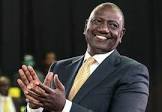Kenya’s Supreme Court on Monday rejected the appeal of the country’s veteran opposition leader Raila Odinga, confirming the victory of former Vice President William Ruto in the August 9 presidential election.
The Kenyan Supreme Court has certified William Ruto’s new position.
After the electoral commission announced his victory with 50.49 percent of the vote, the outgoing vice president quickly changed his biography on Twitter to “President-elect, Republic of Kenya.”
On Monday, after several days of hearings, judges of the Supreme Court upheld his election in the August 9 presidential poll.
“This is a unanimous decision. The appeals are hereby dismissed. Accordingly, we declare the first respondent (William Ruto) elected president,” said Chief Justice Martha Koome.
Under the Kenyan constitution, Ruto is to be sworn in on September 13.
At 55, he becomes Kenya’s fifth president since the country’s independence in 1963.
After the announcement of the final results, he reacted on social media by referring to a chapter of the Bible: “To men it is impossible, but not to God: for to God all things are possible.”
William Ruto, who came from a modest family to become one of the richest men in Kenya, despite his sulfurous reputation, was running for the presidential seat for the first time.
His speeches charmed many voters to whom he presented himself as the candidate of the poor.
He portrayed the duo of Raila Odinga and Uhuru Kenyatta as a dynastic alliance in Kenyan politics.
For his part, 77-year-old Raila Odinga, who had described the results declared by the electoral commission as a parody, has kept his promise made in recent days to respect the decision of the highest court, but not without some reservations.
“We have always defended the rule of law and the constitution. In this regard, we respect the court’s opinion, although we vehemently disagree with its decision today,” said the veteran opposition politician in a statement soon after the ruling.
Odinga was making a record fifth shot at the presidency with the backing of outgoing incumbent President Uhuru Kenyatta.
Established in 2010 and known for its independence, the Kenyan Supreme Court ruled for the third time on a presidential election dispute.
In 2017, it had annulled the election of Uhuru Kenyatta.
Its decisions are final and binding, made by seven judges who are formally appointed by the president, but whom he does not have the power to choose.
ODL/cgd/fss/as/APA


